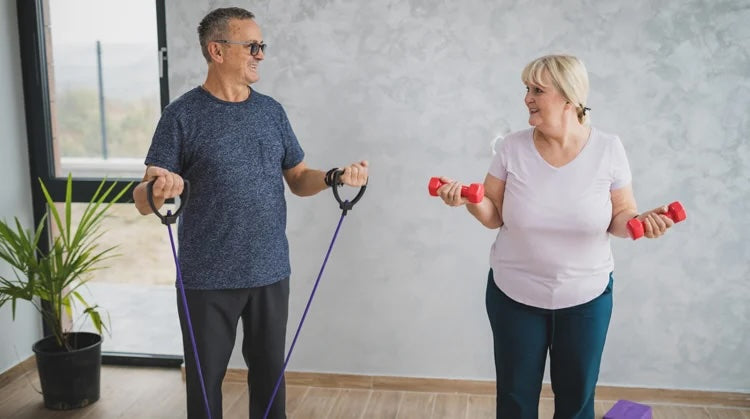Maintaining strong bones becomes increasingly important as we age to prevent fractures and maintain mobility. Bone health is often overlooked until a fracture occurs, but by then, it can lead to long recovery times and potentially life-altering consequences. According to experts, poor bone health can impair mobility, reduce independence, and affect overall quality of life, particularly in older adults. This blog explores the best practices for maintaining strong bones and dispels common bone health myths.
Why Bone Health is Crucial for Older Adults
Bones naturally lose density as we age, increasing the risk of osteoporosis—a condition where bones become fragile and prone to fractures. Both men and women are susceptible to this condition, although it is more common in women due to hormonal changes during menopause. According to the Bone Health and Osteoporosis Foundation, 1 in 5 women and 1 in 20 men over 50 have osteoporosis, often without realizing it until a fracture occurs.
Essential Nutrients for Bone Strength
Maintaining good bone health requires proper nutrition, focusing on two key nutrients: calcium and vitamin D. These are the building blocks for strong bones.
Calcium
Adults aged 19 to 50 need about 1,000 mg daily. After age 50, women should increase their intake to 1,200 mg, while men aged 71 and older should do the same. You can get calcium from dairy products like milk and yogurt, as well as from leafy greens, almonds, and fortified foods.
Vitamin D helps the body absorb calcium and supports bone density. The recommended daily intake is 600 IU for adults up to age 70 and 800 IU for those over 70. Vitamin D can be absorbed from sunlight or obtained through foods like fatty fish, fortified milk, or supplements.
The Power of Exercise for Bone Health
While nutrition is essential, exercise plays a significant role in building and maintaining bone density. Weight-bearing and resistance exercises are particularly effective. When you engage in weight-bearing exercises like walking, jogging, or dancing, your bones respond to the impact by becoming stronger.
Resistance training, such as lifting weights, also helps build muscle and supports and strengthens bones. Incorporating exercises that challenge different muscle groups can improve bone density and reduce the risk of falls and fractures.
Screening for Osteoporosis
Bone density screenings are recommended for women at age 65 and men at age 70 or earlier if risk factors are present. The most common screening is a DEXA scan, which measures bone density and can help identify whether treatment or lifestyle changes are necessary. Screenings can guide healthcare providers in recommending how to slow bone loss or strengthen bones.
Medications for Bone Health: What You Need to Know
If you are diagnosed with osteoporosis, your doctor may recommend medications to slow bone loss or promote bone growth. The most commonly prescribed drugs are bisphosphonates, which slow down the bone breakdown rate. While effective, some patients hesitate due to concerns about rare side effects like jaw problems or thigh bone fractures. Fortunately, doctors can help manage these risks by prescribing drug holidays or recommending alternative treatments (Bone Up on Bone Health …).
Lifestyle Changes for Stronger Bones
In addition to diet and exercise, several lifestyle factors can influence bone health:
Quit Smoking
Smoking is linked to decreased bone density and an increased risk of fractures.
Limit Alcohol
Excessive alcohol consumption can interfere with the body's ability to absorb calcium and negatively affect bone health.
Fall Prevention
Take steps to prevent falls in the home, such as removing tripping hazards, ensuring adequate lighting, and using assistive devices if necessary.
Maintaining strong bones is vital for overall health and independence as we age. By incorporating a balanced diet rich in calcium and vitamin D, engaging in regular weight-bearing exercises, and addressing lifestyle factors, you can improve your bone health and reduce the risk of fractures. Regular screenings and conversations with your doctor can help ensure you're on the right path to maintaining bone strength as you age.
For more insights on bone health and aging, visit nobol.com for resources and products to support your overall well-being.

